The Pre- Last Jedi Fall Movie & TV Roundup
By Chris M. Barkley:
Replicants are like any other machine. They’re either a benefit or a hazard. If they’re a benefit, it’s not my problem.” Rick Deckard, Blade Runner
Blade Runner (1982, ****) with Harrison Ford, Rutger Hauer, Sean Young, Edward James Olmos, Joanna Cassidy. Screenplay by Hampton Fancher and David Peoples, Based on Do Androids Dream of Electric Sheep by Philip K. Dick, Directed by Ridley Scott. Bechdel Test: Failed.
I have seen Blade Runner only twice, once during its initial theatrical run and The Final Cut, a 2007 DVD release that director/producer Ridley Scott personally oversaw. It has to be said that for a 35-year-old film, it holds up incredibly well.
Nestled down in 27th place on the 1982 list of box office films, making almost $34 million on a $27 million dollar budget, Blade Runner was considered a financial failure at the time. It might have fallen into obscurity, had it not been hailed as a cinematic masterpiece by film critics, movie fans and the sf community at large.
Visually, Blade Runner has never been more dazzling. Scott, following up Alien, teamed with Douglas Trumbull, Richard Yuricich, and David Dryer and production design by Lawrence G. Paull created a rather environmentally dark, nightmarish backdrop which the director once called “Hong Kong on a very bad day.”
The removal of Deckard’s voice over narration and the addition of an ambiguous ending vastly improve the Final Cut over the previous six versions that were made before 2007.
It was the consensus opinion at the time that Rutger Hauer practically stole the film acting-wise with his portrayal of Roy Batty. And as far as I’m concerned his performance still rather iconic, but the real surprise is Harrison Ford, who wisely underplays and grounds Rick Deckard in reality, which actually helps contrast his character with Batty’s. Each is desperate in their own way, Batty to extend his and fellow replicant’s lives and Deckard, who simply wants to survive in the endlessly grimy, nightmarish dystopia.
As Deckard hunts the fugitive replicants, the theme of identity and humanity is weaved throughout the narrative; are humans like Deckard (whom I firmly believe is human) becoming less so? Or are replicants, programmed to be as human as possible, are more so than their masters? These are the questions that will mark Blade Runner as an enduring classic for years to come.
Blade Runner 2049 (2017, ***1/2) with Ryan Gosling, Harrison Ford, Robin Wright, Jared Leto, Ana de Armas and Sylvia Hoekes, Screenplay by Hampton Francher and Michael Green, Directed by Denis Villeneuve. Bechdel Test: Fail.
As one of 2017’s most intriguing and anticipated films, Blade Runner 2049 had an almost impossible pedigree to live up to; the 1982 sf classic film Blade Runner. And for the most part, director Denis Villeneuve, producer Ridley Scott, screen writers Hampton Francher and Michael Green and cast, succeeded.
Ryan Gosling plays a Nexus-8 blade runner named K, charged with running down and ‘retiring’ renegade replicants still roaming free on Earth. When K finds a long-buried body on a routine mission, the discovery comes to the notice of Niander Wallace, a reclusive billionaire who now owns the Tyrell Corporations assets. As K’s superior Lt. Joshi (Robin Wright) orders him to quietly investigate of the homicide, Wallace dispatches his murderous replicant aide-de-camp, Luv (Sylvia Hoekes) to recover the remains and monitor K’s every move…
Director Denis Villeneuve, cinematographer Roger Deakins and producer Ridley Scott spared no expense to recreate and expand upon the environs of Blade Runner; from the even darker, damper city streets of Los Angeles, the lonely hydroponic farms of the countryside to the desolate landscape of the dead city of Las Vegas, Blade Runner 2049 is filled with a series of stunning images that enhances the story.
The questions regarding the humanity of replicants go even deeper here, as KD9-3.7 (later renamed Joe) seems to be content running down replicants equal to or lesser than him. We see that he is given a certain latitude in his activities off duty, which includes a salary, a place to live and a virtual girlfriend, Joi (Ana de Armas), who, we are led to believe is there solely to mollify himself. The trade-off is that K is rigorously tested with a modified “Voigt-Kampff” test on a regular basis, which measures the safety parameters of his programming. K’s treatments during the tests are compelling, brutal and chilling.
But Blade Runner 2049 has a flaw that prevents me from declaring it as an equal to its progenitor and that’s its portrayal of women. The images of women, as objects of searches, whims and desires of the male protagonists dominate the core of the film and not in a good way. As an example, it fails the Bechdel when two women in authority have a conversation, but it’s only about a male protagonist. It’s also rather sad not to see any LGBTQ representation in the year 2049, because we know they are not going to vanish, even in a eco-dystopia presented here.
While Ryan Gosling, Robin Wright, Jared Leto, Ana de Armas and Sylvia Hoekes do excellent work, the real revelation here is Harrison Ford, who gives an Oscar caliber performance as an older, more grizzled and haunted Rick Deckard.
The underlying mystery (which I will not spoil here) sets up a seemingly insolvable conflict between humans and replicants, and remains an open question by the end of the film. Will there be more? Only time will tell. The ambiguous ending presented actually works. But, if there is more of a story to tell, I’m sure we won’t have to wait another thirty-five years.
Professor Marston and the Wonder Women, (2017, ***1/2) with Luke Evans, Rebecca Hall, Bella Heathcote, Oliver Platt and Connie Britton. Written and Directed by Angela Robinson. Bechdel Test: Pass!!!!!
I think if the Merchant-Ivory production company were to make a film about the three creators of Wonder Woman, it would look EXACTLY like this.
This film is a recounting of the intertwined lives of William Moulton Marston (Luke Evans), wife Elizabeth (Rebecca Hall) and their mutual muse/lover Olive Byrne (Bella Heathcote) and the creation of an American icon.
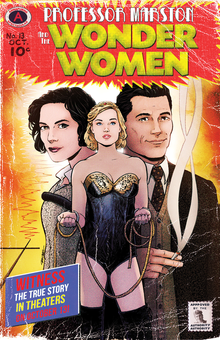 Given the era in which they engaged in what was considered then as being unconventional and scandalous, writer-director Angela Robinson dials back to more titillating aspects of their relationship and, in a tasteful and restrained manner, focused more on the practical (and problematic) aspects of how they lived and loved together. The most fascinating aspects of the film, to those paying VERY close attention, is spotting the few vital elements in the troika’s lives that slowly coalesce into the eventual creation of Wonder Woman.
Given the era in which they engaged in what was considered then as being unconventional and scandalous, writer-director Angela Robinson dials back to more titillating aspects of their relationship and, in a tasteful and restrained manner, focused more on the practical (and problematic) aspects of how they lived and loved together. The most fascinating aspects of the film, to those paying VERY close attention, is spotting the few vital elements in the troika’s lives that slowly coalesce into the eventual creation of Wonder Woman.
Angela Robinson’s screenplay was based on her own research and is in many ways, historically inaccurate in some instances to serve the dramatic purposes of the film. But if you want a truer version of their story, pick up a copy of Jill Lepore’s 2014 book The Secret History of Wonder Woman (Vintage, 2015.)
If a film like Hidden Figures can be nominated for a Hugo Award for Best Dramatic Presentation, I can only hope that those same nominators can extend the same courtesy to Professor Marston and the Wonder Women, because it will certainly have a place on honor on my ballot.
Stranger Things 2 (2017, nine episodes, ***1/2) with Winona Ryder, David Harbour, Finn Wolfhard, Millie Bobby Brown, Gaten Matarazzo, Caleb McLaughlin, Natalie Dyer, Charlie Heaton, Cara Buono, Noah Schnapp, Sadie Sink, Joe Keery, Dacre Montgomery, Matthew Modine, Sean Astin and Paul Reiser. Created by Matt and Ross Duffer. Bechdel Test: Passed.
When we last left our favorite dimension-busting heroes, Will Byers (Noah Schnapp) has been rescued from the “Upside Down” by his mother Joyce (Winona Ryder) and Sheriff Hopper (David Harbour), Will’s best friends, Mike, Dustin and Lucas (Finn Wolfhard, Gaten Matarazzo and Caleb McLaughlin) were saved from an “other side” were-beast by supergirl Eleven (Mille Bobby Brown), various teenage, angst driven subplots (except for poor Barb) were resolved and the world was saved.
And if you believe THAT, I’ve got a slightly used Correllian freighter I wanna sell you.
Season two picks up more than a year later, at Halloween. While the majority of the town of Hawkins, Indiana prepares for trick or treat:
Will is still suffering PTSD (and more) from his time from the “Upside Down”.
Sheriff Hopper is harboring Eleven in a remote location in an attempt to shield her from the outside world, with mixed results.
Eleven discovers a secret Hopper has been keeping from her which leads to other devastating revelations.
Some new kids, a mysterious step brother and sister (Dacre Montgomery and Sadie Sink) hit town and are responsible for some rampant speculation.
Is Joyce’s nerdy new boyfriend Bob, who works at the local radio Shack, too good to be true?
The “Department of Energy’s” new head of management looks eerily like that corporate weasel in 1986’s Aliens, which, strangely enough, still two years away from being released in this timeline.
Barb’s parents hire a conspiracy theorist (Murray Bauman) to find out what happened to her.
Dustin acquires a “pet”.
And there is a bigger and badder menace lurking on the other side of the “Upside Down” that is actually BIGGER and BADDER!
The problem with any sort of sequel is whether or not it can equal or surpass its progenitor. It’s very clear the creators of Stranger Things, writer-directing twin brothers Matt and Ross Duffer, know their genre tropes, the cultural history of the 1980’s (when they were kids themselves), their characters and what sort of story they want to tell.
The cast not only interact well together (as their Screen Actors Guild Award for Outstanding Performance by an Ensemble in a Drama Series can attest), you can sense that they are having a great time doing it.
Some critics and viewers have expressed dismay or anger in particular about Episode Seven, “The Lost Sister”, which, I will say not to present too much of a spoiler, is Eleven centric. As a viewer and a fan, I felt that this particular part of the story was ABSOLUTELY NECESSARY for Eleven to find out and experience for herself, in order for the character to continue her journey towards understanding herself. It also happens to be, in my opinion, the best single episode of Stranger Things (so far).
Netflix has greenlit Season Three for next year and the Duffer Brothers have stated that they have a fourth and final season on the drawing boards. The whole world will be waiting and watching for what comes next. I’m betting it will be even more amazing than we can possibly imagine.
Thor: Ragnarok, (2017, ****) with Chris Hemsworth, Cate Blanchett, Tom Hiddleston, Mark Ruffalo, Idris Elba, Tessa Thompson, Karl Urban, Jeff Goldblum and Anthony Hopkins. Screenplay by Eric Pearson, Craig Kyle and Christopher Yost based on The Mighty Thor created by Stan Lee, Jack Kirby and Larry Lieber. Directed by Taika Waititi.
Among all of the heroes of the Marvel Cinematic Universe, it is generally agreed that the Mighty Thor is easily one of the most pompous and boring member of the Avengers.
Oh, there is no doubt the first film and The Dark World were very competent, workman like adventures that ably fill in Thor’s backstory, establishes Asgardian history and advances the MCU storyline forward. But let’s face it; Chris Hemsworth is great looking while kicking everyone’s ass and Tom Hiddleston’s Loki practically steals every scene he’s in.
So it was (for a while at least) a real head-scratcher when the first trailers and promotional ads came out, viewers were inclined to laugh out loud at the antics from the cast. But title of the film, the old Norse term “Ragnarok” roughly meaning doomsday, suggests some dire events are in store for Thor and company.
And indeed things are quite dire as the film opens; Odin is missing from Asgard thanks to Loki’s treachery and Thor strong arms him into a search, which in turn leads to an amusing cameo by Doctor Strange (as played by a slightly bemused Benedict Cumberbatch) and touching, but entirely too brief reunion with Odin (Anthony Hopkins). Then Hela, the goddess of Death (Cate Blanchett) shows up and all hell breaks loose. Then there’s the matter of the Hulk popping up unexpectedly, wanting to beat our hero’s face in as hard as possible.
Had Ragnarok been handled with a straight and narrow narrative, it would have been another ordinary action film bridging the lead up to the inevitable showdown with Thanos. So, Marvel think tank called an audible on the line of scrimmage and subversion became the order of the day.
Yes, Ragnarok is devastatingly funny but also leavens the humor with tragedy and a tinge of regret. The cast eagerly takes up the challenge and delivers performances swing between being dramatic and self-deprecating that dance up to the line of parody but never crosses it.
Besides the screenwriters, New Zealand director Taika Waititi is mainly responsible for injecting the rather wry and scathing sense of humor this movie needed.
The result is that Ragnarok can be ranked among the best of the sixteen MCU films. See it!
Justice League, (2017, ***1/2) with Ben Affleck, Amy Adams, Gal Gadot, Ezra Miller, Jason Momoa, Ray Fisher, Jeremy Irons, Diane Lane, Connie Nielsen, J. K. Simmons, Ciarán Hinds and Henry Cavill. Screenplay by Chris Terrio and Joss Whedon, Story by Chris Terrio and Zack Snyder, based on Justice League of America created by Gardner Fox. Directed by Zack Snyder (with Joss Whedon). Bechdel Test: Passed.
I have no doubt that a lot have you have heard that the Justice League movie sucks. Rotten Tomatoes gave it a 43% rating. NPR’s Bob Mondello said “nice try”. Rolling Stone said it was loud, noisy fun. The Hollywood Reporter said it was “ugly and boring” while Uproxx opined that what this movie really needed was Wonder Woman director Patty Jenkins.
And, in the interests of full disclosure, I’ve been a reader and a fan of the Justice League of America ever since my cousin Michael first placed a copy of August 1966 issue (number 46, if you’re scoring at home) in my hands on a hot summer afternoon.
Well, surprise, I didn’t like Justice League, either.
I LOVED IT!
Sure, it had a basic plot that bears more than a few similarities with the first Avengers movie; the Earth is being menaced by an alien invasion. But the strength of the film (as it was in The Avengers) is the story of how a group of heroes who are basically loners, come together.
Set just after the tragic death of Superman, the world not only mourns, but seems to be coming apart at the seams. Between random acts of terrorism and encounters with alien para-demons, Bruce Wayne (Ben Affleck) and Diana Prince (Gal Gadot) seek out to recruit some super-powered help; a lightning fast speedster (Ezra Miller), a cyborg enhanced with alien technology (Ray Fisher) and the King of Atlantis (Jason Momoa).
The screenplay, by director Zach Snyder, Chris Terrio and Joss Whedon doesn’t make it easy for them to come together as a team, but when they do, it is a thing of cinematic beauty. The direction, split between Snyder and Avengers alum Whedon, hits all the right notes at precisely the right time.
Gal Gadot and Ben Affleck anchor the film with their performances, but they give enough space to the newcomers, and they shine. Making Ezra Miller’s Flash a nerdy motor mouth (as he’s portrayed in numerous animated renditions) was a safe, but smart move. Ray Fisher’s Cyborg is a bit of an enigma, but his character seeming leaves plenty of room to explore in future adventures. But the real revelation in Justice League is Jason Momoa’s Aquaman, giving a forceful, swaggering, in your face, breakout role that will permanently put to rest all those countless putdowns comedians have heaped on the character for decades.
In the days since the opening, I have read many critical reviews of Justice League that have lambasted the story structure, the “lame” villain, the preponderance of CGI effects, the Amazon warriors costumes, Henry Cavill’s troublesome upper lip (oops, SPOILER!) and a host of other nit-picking details. What a majority of them consistently fail to realize or acknowledge is that DC movies are not Marvel movies and vice-versa. I have been admiring Justice League and other DC films for what they are, not what other people think they should be.
By the way, it might be a GOOD IDEA to stick around to the VERY end of the credits, just as you would for the other guy’s films because you might miss an item or two that may interest you. Just Sayin’…
Discover more from File 770
Subscribe to get the latest posts to your email.

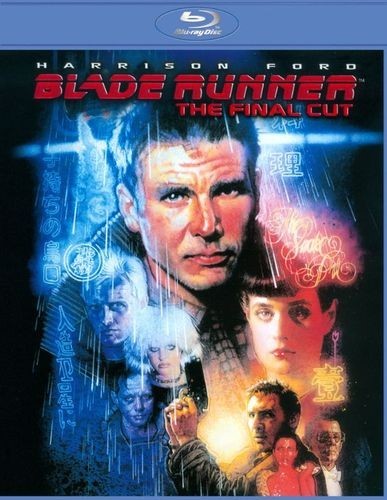
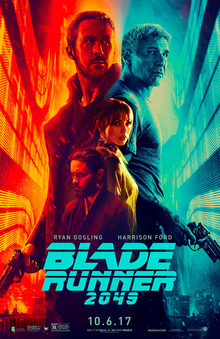
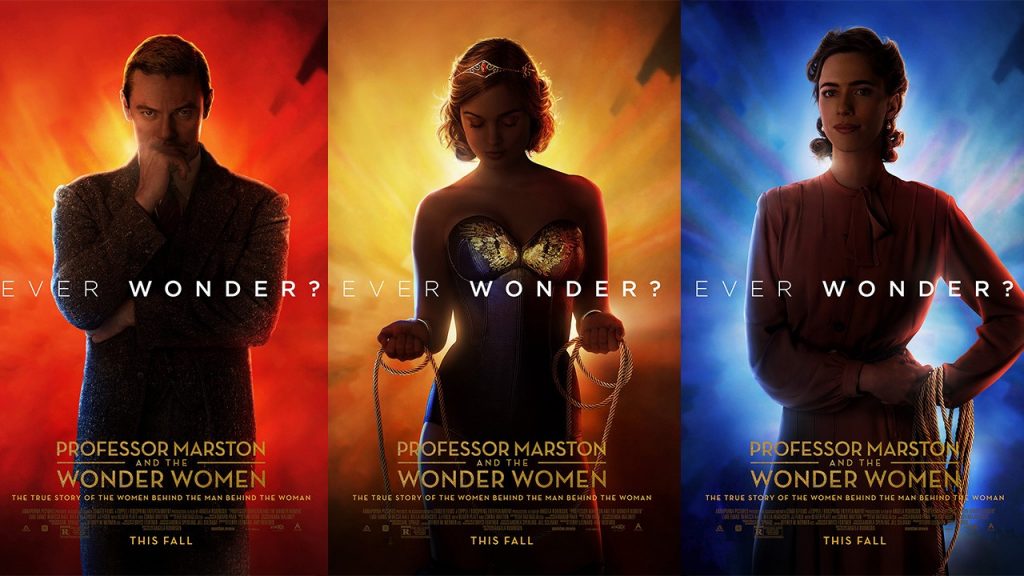
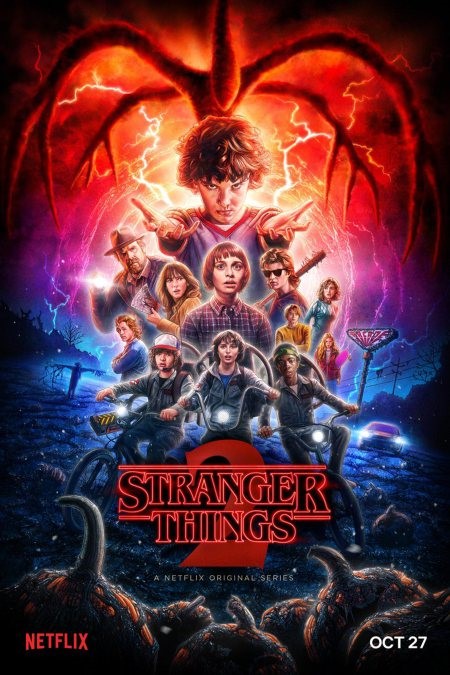
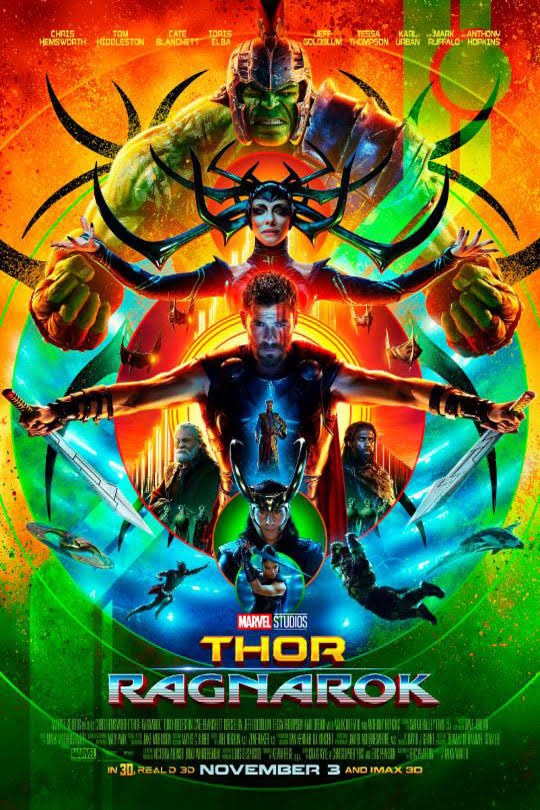
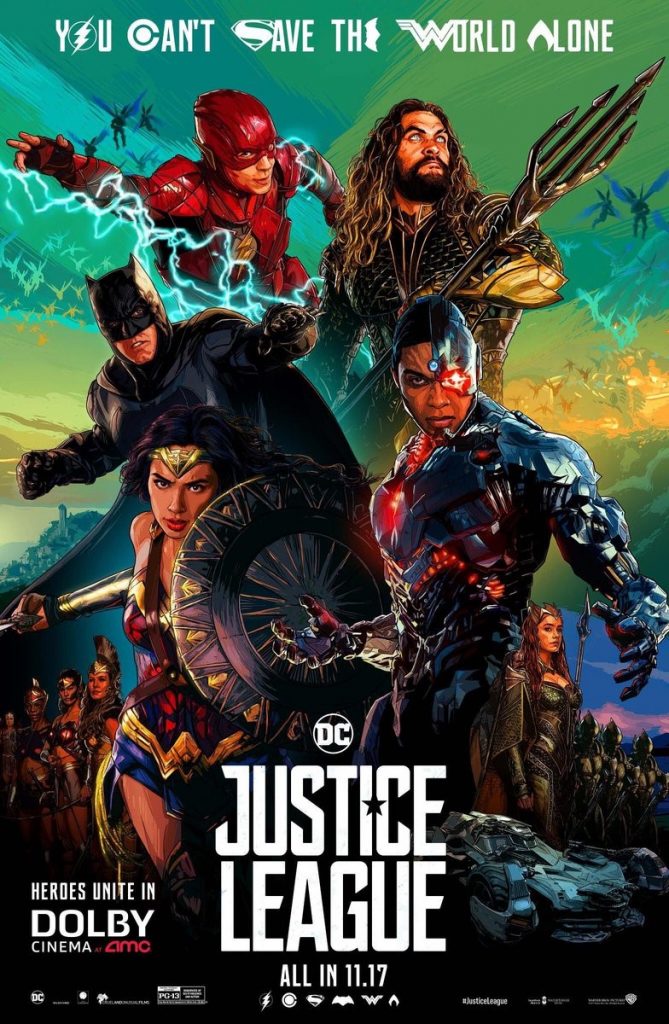
I may be the odd person out, as the first review I saw for Justice League was a positive one. Everything else until now has been middlin’ to negative (except the pompous trolling thing), but my first impression wasn’t of a failure.
I still want to see Thor: Ragnarok much much more.
I’ll admit that I enjoyed Justice League as well.
BR:2049 was a hot mess of illogicality and nonsense and will, I believe, find it’s rightful place next to Blade Runner as “you know there was a sequel…don’t bother”.
Pingback: AMAZING NEWS FROM FANDOM: 11/26/17 - Amazing Stories